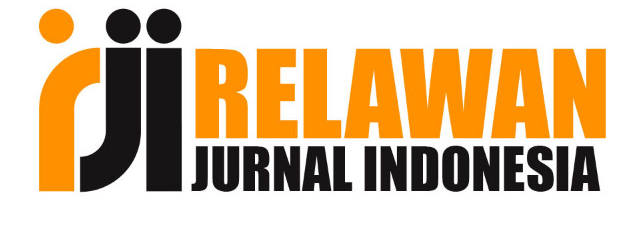Pengaruh Payment Gateway dan Peer to Peer Lending (P2P) terhadap Peningkatan Pendapatan di Kota Palembang
DOI:
https://doi.org/10.36982/jiegmk.v11i1.1063Abstract
ABSTRACT
Fintech is an innovation that has emerged in the field of financial services. Fintech changed the habits of public financial transactions. There are 2 types of fintech that are very popular for SMEs, namely Payment Gateway and Peer to Peer Lending (P2P). This study aims to analyze the effect of Payment Gateway and Peer to Peer Lending (P2P) on the increase in MSME income in the city of Palembang. The type of data used is primary data with data sources derived from questionnaires and interviews. The sampling method used in this study is purposive sampling, where the sample in this study is only for the types of MSMEs that are engaged in culinary and fashion in Pakembang. The analysis technique uses validity test, reliability test, normality test, coefficient of determination test (R2) and partial test (t test). Based on the results of the t test and the f test it can be concluded that there is an influence of Payment Gateway and Peer to Peer Lending (P2P) to increase revenue.
Keywords:Â Fintech, Revenue, SME
ABSTRAK
Fintech merupakan inovasi yang muncul di bidang jasa keuangan. Fintech mengubah kebiasaan transaksi keuangan masyarakat. Ada 2 jenis fintech yang sangat popular bagi pelaku UMKM yaitu Payment Gateway dan Peer to Peer Lending (P2P). Penelitian ini bertujuan untuk menganalisis pengaruh Payment Gateway dan Peer to Peer Lending (P2P) terhadap peningkatan pendapatan UMKM di kota Palembang. Jenis data yang digunakan adalah data primer dengan sumber data berasal dari kuisioner dan wawancara. Metode penarikan sampel yang digunakan pada penelitian ini yaitu purposive sampling, di mana sampel pada penelitian ini hanya pada jenis UMKM yang bergerak di bidang kuliner dan fashion di Kota Pakembang. Teknik analisis menggunakan uji validitas, uji reliabilitas, uji normalitas, uji koefisien determinasi (R2) dan uji parsial (uji t). Berdasarkan hasil uji t dan uji f dapat disimpulkan bahwa terdapat pengaruh Payment Gateway dan Peer to Peer Lending (P2P) terhadap peningkatan pendapatan.
Kata Kunci:Â Fintech, Peningkatan Pendapatan, UMKM
References
Aaron, M., Rivadeneyra, F., & Sohal, S. (2017). Fintech: Is This Time Different? A Framework for Assessing Risks and Opportunities for Central Banks. Bank of Canada, 1–32. Retrieved from www.bankâ€banque†canada.ca
Akifa P. Nayla, Komplet Akuntansi untuk UKM dan Waralaba, Laksana, Jogjakarta, 2014, hlm. 12
Arner, DW; Barberis, JN; Buckley, R. (2015). The Evolution of FinTech: A New Post-Crisis Paradigm? Author(s), 0–45. Retrieved from http://hdl.handle.net/10722/221450%0AThis
Au, Y. A., & Kauffman, R. J. (2008). The economics of mobile payments: Understanding stakeholder issues for an emerging financial technology application. Electronic Commerce Research and Applications, 7(2), 141–164. https://doi.org/10.1016/j.elerap.2006.12.004
Cahery, J. M., Fenwick, M., & Vermeulen, E. (2017). FinTech and the financing of enterprises: From crowdfunding to marketplace lending, (September). Retrieved from https://www.narcis.nl/publication/RecordID/oai:tilb urguniversity.edu:publications%2Ff6920431-bbcc- 4e9c-8855-504613011158
Ernama Santi, pengawasan otoritas jasa keuangan terhadap financial technology ( peraturan otoritas jasa keuangan nomor 77/pojk.01/2016, diponegoro law journal, Volume 6, Nomor 3, Tahun 2017
Gai, K., Qiu, M., & Sun, X. (2018). A survey on FinTech. Journal of Network and Computer Applications, 103, 262–273. https://doi.org/10.1016/j.jnca.2017.10.011
Garvey, K. et al. (2017). Cultivating growth. The 2nd Asia Pacific Region Alternative Finance Industry Report - Cultivating Growth (September). Cambridge Centre for Alternative Finance (CCAF). London : University of Cambridge., (September).
Ghazali, N. H., & Yasuoka, T. (2018). Awareness and Perception Analysis of Small Medium Enterprise and Start-up Towards FinTech Instruments- Crowdfunding and Peer-to-Peer Lending in Malaysia. International Journal of Finance and Banking Research, 4(1), 13–24. https://doi.org/10.11648/j.ijfbr.20180401.12
Lacasse, R. M., Lambert, B. A., Osmani, E., Couture, C., Roy, N., Sylvain, J., & Nadeau, F. (2016). A Digital Tsunami FinTech and Crowdfunding Introduction Purpose Statement , Terms and Methodology Current State of FinTech and Disruptive Clusters. International Scientific Conference on Digital Intelligence, 1–5.
Lu, L. (2018). Promoting SME Finance in the Context of Fintech Revolution: A Case Study of the UK’s Practice and Regulation. Banking & Finance Law Review, 33(3), 317–343. Retrieved from https://papers.ssrn.com/sol3/papers.cfm?abstract_id =3144767
Milne, A., & Alistair. (2016). Competition policy and the financial technology revolution in banking. Retrieved from https://dspace.lboro.ac.uk/dspace- jspui/handle/2134/22668
Undang-Undang Usaha Mokro, Kecil dan Menengah. Pustaka Mahardika, Yogyakarta, 2013, hlm. 3. World Bank Group. (2017). Global Findex (English
version). https://doi.org/10.1596/978-1-4648-1259- 0
Downloads
Published
How to Cite
Issue
Section
License
Authors retain copyright and grant the journal right of first publication with the work simultaneously licensed under a Creative Commons Attribution License that allows others to share the work with an acknowledgement of the work's authorship and initial publication in this journal.
Â
Authors are permitted and encouraged to post their work online (e.g., in institutional repositories or on their website) prior to and during the submission process, as it can lead to productive exchanges, as well as earlier and greater citation of published work.
Â
LP2M Indo Global Mandiri University has the right to multiply and distribute the article and every author is not allowed to publish the same article that has been published in this journal.










